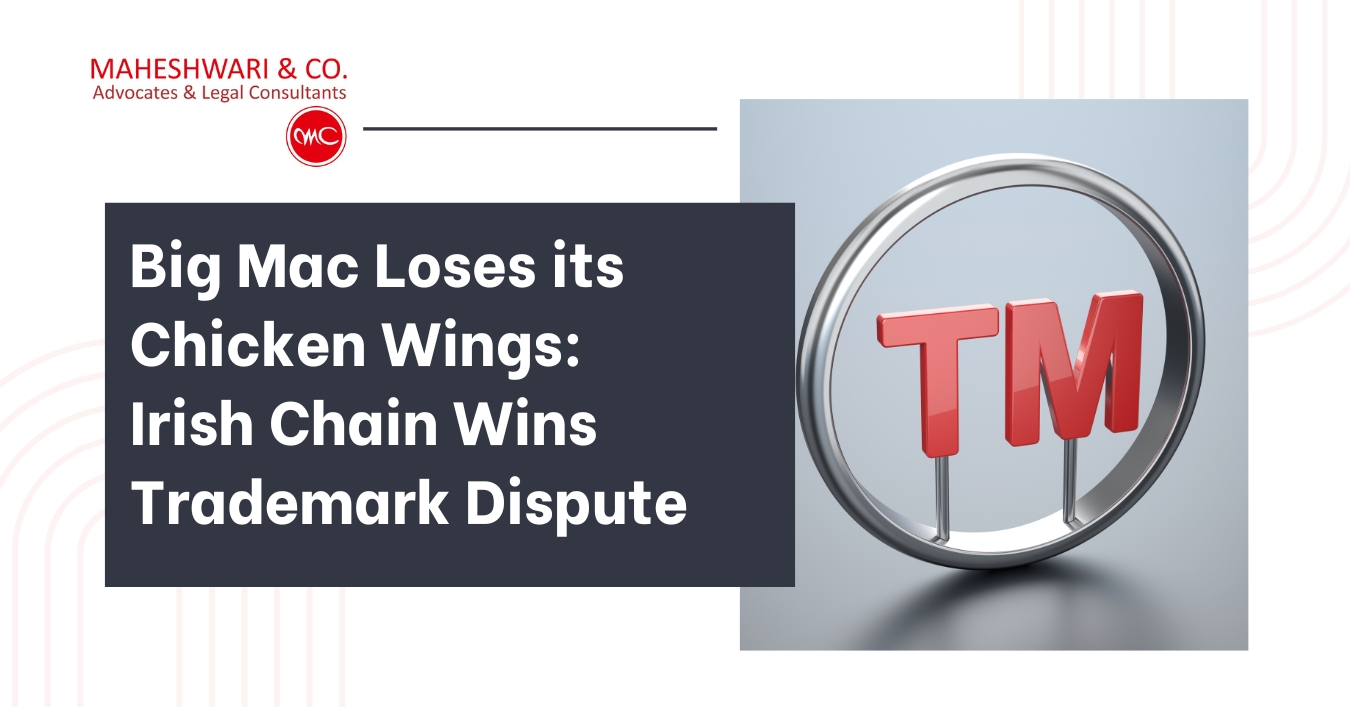The small Irish restaurant chain Supermac won the legal dispute against McDonald’s over the use of the ‘Big Mac’ trademark. The EU’s second-highest court found that McDonald’s had not proved ‘genuine use’ of the trademark for chicken products in the last five years within the EU. Supermac’s win represents more than just sandwich supremacy; it also indicates a possible change in EU trademark law.
The ruling by the European Court of Justice (ECJ) ends a seven-year legal fight by the Irish operator against its global rival. Supermac and McDonald have been caught in a dispute over the Big Mac trademark since 2017, when Supermac requested the European Union Intellectual Property Office (EUIPO) to annul McDonald’s ‘Big Mac’ trademark for use on certain goods, including chicken and meat burgers. A Big Mac consists of two beef patties, pickles, onions, cheese, lettuce and Big Mac sauce. The trademark was registered in 1996 in the EU by McDonald[1].
Supermac’s application was partially upheld by the EUIPO at the time, but it did confirm that McDonald’s was still fully protected to use the trade mark for “foods prepared from meat and poultry products and meat and chicken sandwiches[2]”as well as certain services related to running drive-throughs, carry-outs, and restaurants.
McDonald’s contested that decision and on 5 June 2024, ECJ reached a conclusion. The court held that McDonald’s failed to prove that the contested mark has been put to genuine use as regards the goods “chicken sandwiches”, the goods “foods prepared from poultry products” as well as services associated with the restaurants, drive-throughs and carry-outs. After the ruling, When it comes to chicken burgers sold in the EU, McDonald’s no longer has the sole right to use the term ‘Big Mac’. This gave Supermac the opportunity to possibly register a similar-sounding chicken sandwich. For its traditional beef burgers, McDonald’s is allowed to keep using the ‘Big Mac’ trademark throughout the European Union.
The court ruled that the evidence which was submitted by McDonald’s does not provide any indication of the extent of use of the trademark and it does not serve to prove that there has been genuine use of the contested trademark in connection to ‘food made from poultry products’ and chicken sandwiches.
According to EU laws, ‘genuine use’ refers to using a trademark in public in line with its essential function, which is to ensure the identity of the origin of the goods or services for which it is registered in order to establish or maintain a market for those goods or services[3]. Genuine use is one of the prerequisites for trademark holders to maintain the validity of trademarks and their ability to enforce their trademark rights against third parties. Lack of genuine use could lead to trademark revocation. After the grace period of five years following the registration of the trademark, the trademark holder may be required to demonstrate the use of the trademark for the goods and services covered by the registration. The EUIPO will not automatically recognize a mark’s genuine use only because it is well-known. Proof of the use of a trademark must be provided according to particular standards, the EUIPO not being able to rely on facts that have not been submitted to it.
The outcome in the Big Mac case highlights the importance of the genuine use requirement in EU trademark law. The General Court’s ruling in this case highlights the requirement that trademark holders produce specific, in-depth proof of actual use in order to preserve trademark protections. The ruling has encouraged conversations about how crucial it is to actively use trademarks. While a brand may own a name, neglecting to utilize it for specific products or services can create vulnerabilities. In order to protect their rights in the event of a non-use cancellation action, it serves as a reminder to trademark owners of the significance of routinely gathering pertinent documentation demonstrating the use of their trademarks. McDonald’s was unfazed by the ruling, which can be appealed but only on points of law. In a press statement company said that “The decision by the EU General Court does not affect our right to use the ‘Big Mac’ trademark.[4]“
Author: Ketan Joshi, Senior Associate
Co-Author: Aayushi Agrawal, Intern






